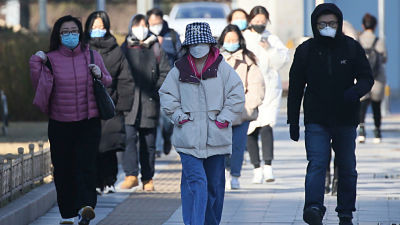How Chinese Culture Helped Fight Against the Coronavirus
As COVID-19 continues to spread around the globe, China has claimed relative success in dealing with the virus.
On closer inspection, much of this success comes down to Chinese culture.
In this blog, we are going to look at some aspects of Chinese society, beliefs and culture.
This will help us better appreciate how this shaped China’s response to the crisis.
Confucianism
To understand Chinese culture, we need to touch upon the ancient influences of Confucius (551 – 479 BCE).
The Chinese philosopher has had a profound effect on the way the Chinese tend to do things.
Confucius developed an approach to life which brought much needed peace and harmony during a tumultuous period of civil wars and power struggles.
His philosophies centred on achieving social harmony through a system of guidelines relating to areas such as hierarchy, interpersonal obligations, harmony and collectivism.
These guidelines became deeply intrenched in Chinese culture and they continue to shape the way people behave and communicate to the current day.
Popular Chinese adages, such as ‘The tree that grows taller than the forest will be truncated by gales’ or, ‘The shot hits the bird that pokes its head out’ attest to these influences.
More than a passing fancy, these adages reflect the very real social and cultural makeup of China.
Hierarchy
In practice, putting one’s head above the parapet and making oneself heard – particularly if it disrupts harmony or impacts social order, can have potentially serious effects.
Take for example Dr Li Wengliang, a doctor in a Wuhan hospital, who was reprimanded by police for raising the alarm at the outset of the infection.
Subsequent accusations levelled at him by the Public Security Bureau, suggested that he had made ‘false comments’, which had ‘severely disturbed social order’. He was forced to sign a letter testifying to the validity of these accusations.
Within a strict hierarchical society, people tend to learn ‘their ‘place’ at a very young age. It could be argued that it’s the value placed on hierarchy which has facilitated and enabled the strict authoritarian structures that we see in place today.
Couple this with the need to preserve harmony and it’s easy to understand the cultural drivers silencing Dr Li Wengliang.
Authority
China’s cultural values coupled with authoritative hierarchical expressions have served to stymie and confront the virus in a way that even the most optimistic of people would have considered impossible.
With Chinese hospitals being pushed to the limit in the fight against patients infected with COVID-19, most individuals could have been forgiven for thinking that things would only get worse.
However, events took a direction that no one expected. The virus was brought under control.
A joint World Health Organisation mission in February 2020, conducted by a mixed international and domestic team, found a massive decline in new cases. They visited hospitals with empty beds, and confronted researchers struggling to find a sufficient number of guinea-pigs for experimental drug trials.
Although the authoritarian nature of the Chinese government is often cause for great international criticism, this framework served the fight against the virus well.
The single party government was able to produce and affect plans almost immediately. Measures which have included the closing of transport systems, schools, workplaces and enforced house confinement, have confined viral spread to immediate family groups and reduced opportunities for the virus to spread elsewhere.
Collectivism
In a hierarchical society with a focus on sacrificing oneself for the collective, people have adhered to the restrictions placed on them and have readily implemented government direction.
In fact, the WHO report specifically cites that,
"Achieving China’s exceptional coverage with and adherence to these containment measures has only been possible due to the deep commitment of the Chinese people to collective action in the face of this common threat”.
No one knows how the virus will behave once restrictions are lifted, but it’s fair to say that few other societies in the world have the cultural and political backdrop needed to enforce such strict measures, and for these measures to be delivered with such immediate collective action.
Cultural Differences
If you look around the world, and look carefully enough, you will see how different cultures around the world are dealing with COVID-19.
The Chinese will be dealing with it one way, the Americans their way, the Italians another, the Iranians another and so on.
The reason why is that subtle cultural differences between us all shape and mould how we do things.
By accepting you will be accessing a service provided by a third-party external to https://www.commisceo-global.com/

 +44 0330 027 0207 or +1 (818) 532-6908
+44 0330 027 0207 or +1 (818) 532-6908
